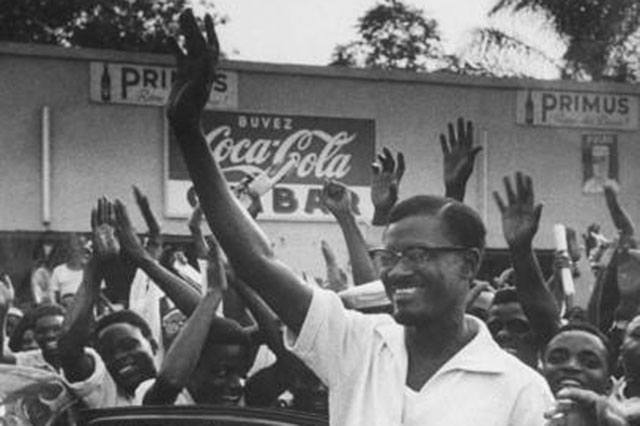Tshumbe – The coffin of slain Congolese independence hero Patrice Lumumba returned to his home on Wednesday for an emotionally charged tour and burial, more than six decades after his assassination.
A plane took Lumumba’s mortal remains – a tooth that ex-colonial power Belgium handed over to his family on Monday -from Brussels to Kinshasa for a nine-day trip around the Democratic Republic of Congo.
The coffin and an accompanying delegation then flew to the central province of Sankuru, where the country’s first post-independence leader was born in the village of Onalua in 1925.
“Mr first prime minister,” the DRC’s police and armed forces “are lined up to pay their respects to you on your return to your native village”, a police officer standing to attention solemnly said, in front of the coffin as it arrived at the aerodrome in the town of Tshumbe.
From there, it was taken 25km (15 miles) to Onalua, where two days of tributes are planned.
“coffin containing Patrice Lumumba’s gold tooth was passed to his family members at a ceremony in Brussels”— His daughter re: bringing it back to the DRC it is symbolic “because what remains is not really enough. But he has to come back to his country where his blood was shed.” pic.twitter.com/7OgqLljBEC
— unpopular opinions (@melafela) June 22, 2022
Transported by an army vehicle covered with a Congolese flag, the coffin arrived at the village square to the sound of tam-tam drums.
A podium in the national colours of yellow, blue and red, tents and banners bearing Lumumba’s face had been set up.
The remains will visit sites symbolically important to Lumumba’s life and be laid to rest in a mausoleum in the capital Kinshasa on June 30, following three days of national mourning.
“His spirit, which was imprisoned in Belgium, comes back here,” said Onalua Maurice Tasombo Omatuku, a traditional chief and nephew of Lumumba.
Finally able to mourn his uncle but knowing he was assassinated in 1961, Omatuku said he was feeling emotionally torn.
‘The son is returning’
Onalua has since 2013 been part of a commune named Lumumbaville in honour of the anti-colonial leader.
On Tuesday, ahead of the arrival home of its favourite son, a local resident pointed to a large, unfinished concrete house falling into dilapidation, with much of its roof missing.
“That’s the family plot where Lumumba was born,” he said.
Catherine Mbutshu said she felt joy at the idea that Lumumba’s “relic” was finally returning to the land of his forefathers.
ALSO READ | WATCH | Remains of independence hero Lumumba return to DRC
“I’m old, my legs hurt, but I’m happy because the son is returning,” said the woman believed to have once known Lumumba.
“I spoke with him before his departure for Kisangani,” his political bastion in northeastern Congo, she said.
Lumumba earned his place in history as an anti-colonial icon when the DRC proclaimed independence from Belgium on June 30, 1960, delivering a fiery speech against settler racism.
He was overthrown that September before separatists from the southern region of Katanga and Belgian mercenaries executed him and two close supporters, Maurice Mpolo and Joseph Okito, on January 17, 1961.
‘Worthy burial’
Lumumba’s body was dissolved in acid and never recovered.
Decades passed before human remains were discovered in Belgium, after a Belgian police officer who took part in Lumumba’s death boasted about his actions in the media. Belgian authorities seized the tooth from the officer in 2016.
In a solemn ceremony in Brussels on Monday, a casket containing the tooth was placed in a coffin that Belgium handed over to the Congolese authorities in the presence of Lumumba’s family.
“Father, we mourned your passing without performing the funeral prayer… our duty as descendants was to offer a worthy burial,” said his daughter Juliana.
Belgian Prime Minister Alexander De Croo apologised again for his country’s “moral responsibility” in Lumumba’s death.
Two weeks before, Belgium’s King Philippe on his first trip to the DRC reiterated his “deepest regrets for the wounds” inflicted by Belgian colonial rule.
Historians say millions of people were killed, mutilated or died of disease as they were forced to collect rubber under Belgian rule.
The land was also pillaged for its mineral wealth, timber and ivory.
Follow African Insider on Facebook, Twitter and Instagram
Source: AFP
Picture: Twitter/@CyrilRamaphosa
For more African news, visit Africaninsider.com


